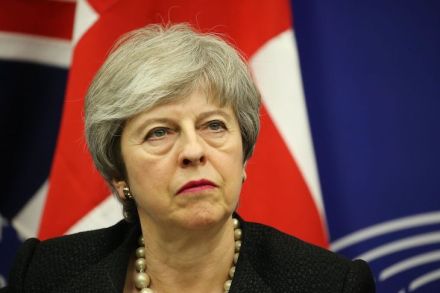The PM is setting herself up for humiliation today
Truthfully I don’t really understand why the prime minister is holding a vote tomorrow to approve the Withdrawal Agreement she negotiated with the EU – other than the symbolism of showing that on the day she originally set as Brexit day, 29 March 2019, she is still working hard to extricate the UK from the EU. Because I don’t see how she wins it. It’s almost irrelevant that tomorrow’s vote won’t be a ‘meaningful vote’, under the terms of the EU Withdrawal Agreement act. It is to all intents and purposes a meaningful vote: if the motion laid tonight is passed tomorrow, MPs WOULD be approving Brexit, under the terms



















